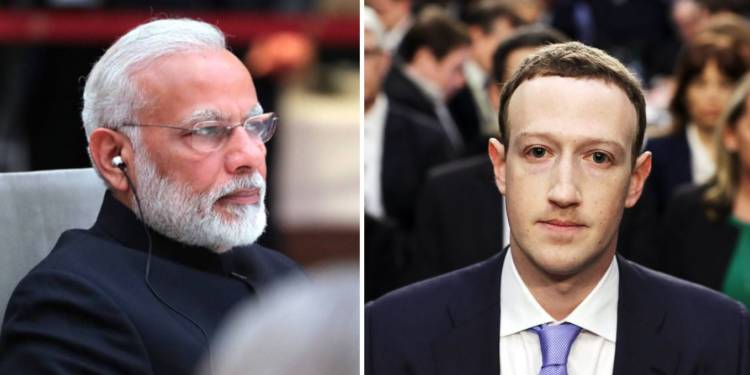According to a report by India Today, Facebook’s founder Mark Zuckerberg is worried about the security and privacy of Facebook and fears that if anything falls below the standard in the context of India’s national security, then the Indian government can drop the sledgehammer on it too, just like it did on Tik Tok–by banning it overnight.
Earlier, tfipost.com had published an article on July 1 titled “Play nice or get banned,’ Modi Govt has also sent a tough message to Facebook, Google and Twitter” and it looks like the message has indeed reached the intended parties.
‘Play nice or get banned,’ Modi Govt has also sent a tough message to Facebook, Google and Twitter
Quoting The Verge writer Casey Newton, the article mentioned that Zuckerberg was worried about TikTok’s India ban. Facebook and in specific Zuckerberg felt that if the Union government could ban an app boasting of 120 million active users in a heartbeat then what is stopping it from coming down on the silicon valley based company—if some breaches in its security policies are brought into the light.
“Facebook already faces fights around the world from governments on both the left and the right related to issues that fit under the broad umbrella of national security: election interference, influence campaigns, hate speech, and even just plain-old democratic speech. Zuckerberg knows that the leap from banning TikTok on national security grounds to banning Facebook on national security grounds is more of a short hop,” the report by Casey read.
Tik Tok was emerging as a stiff competitor to Facebook in the country and when banned, Facebook took this golden opportunity with both hands. To cash in on the opportunity, Facebook-owned Instagram quickly rolled out the ‘Reels’ feature in India—a clone of Tik Tok. Its success is yet to be gauged but so far it has been catching on amongst the youth.
However, with the government throwing the kitchen sink on China by banning TikTok and 58 other Chinese espionage apps, Zuckerberg is feeling jittery.
And Facebook indeed has the grounds to be worried. The company founded in 2004 by Zuckerberg, who was in Harvard at the time, has been mired in countless controversies over the years.
Back in 2016, Facebook’s Free Basics service, which means a free but restricted internet service, was also banned in India by the telecom regulators. The TRAI had said that the Free Basic services were banned in India because it violated the principles of net neutrality.
The Zuckerberg led Facebook has also come under increasing pressure to do much more to combat states and political groups using its platforms to spread false and misleading information.
Facebook and its related entity WhatsApp are attributed to spreading most of the fake news that traverses the modern cyber-world. In the Indian context, this problem has become gargantuan, off late.
Like Twitter, Facebook has had a long and dubious history of being left-leaning as it regularly stifles pro-Right voices. To compound its adversities, Facebook has been mired in controversies like the misinformation campaign by the Russians to aid Donald Trump’s victory, the infamous Cambridge Analytica Scandal where the user data of 87 million Facebook users was compromised to numerous other data-theft allegations which collectively have dented the companies’ reputation.
Questioning Facebook’s political diversity, in 2018, some of its employees in the US created a Facebook group called ‘FB’ers for Political Diversity’ to challenge Facebook’s work-culture of allowing hyper-partisan left-leaning news outlets to go unabated whilst culling the conservative voices.
And Zuckerberg isn’t really looking forward to facing the government’s wrath either. The congressional hearing of Zuckerberg is still fresh in the public’s memory which had inadvertently started a meme trend as Mark looked absolutely pale and robotic in his replies.
One could gauge that he was super uncomfortable going through the political shindigs.
Zuckerberg is due to appear before the House of Representatives’ antitrust committee later this week and it will be interesting to see how well prepared he comes this time around.
India is a big market for Facebook with over 260 million daily active users, and Zuckerberg intends to keep the government at bay by keeping it happy with its water-tight policies. The Tik Tok ban would have got the entire company on its toes to correct any loopholes.
So far, the Indian government has not gone toe-to-toe with Facebook like Trump’s administration but if Zuckerberg doesn’t get his house in order then who knows Facebook could tread down the same path as Tik Tok, and that can be catastrophic for the company.




























